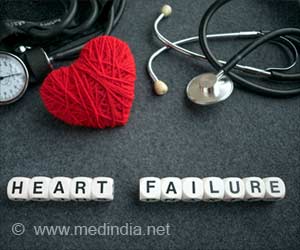
Nocturnal heat flashes, no matter when they occur, are unpleasant. According to a recent study, there is a higher possibility of hot flashes during the second half of the night, when more rapid eye movement (REM) sleep usually occurs, and when disrupting sleep can raise the risk of heart disease.
Nocturnal hot flashes are one of the most prevalent menopausal symptoms for women. The phase of a woman’s life just before the end of the menstrual cycle, known as perimenopause, is marked by a drop in hormone levels that initiates irregular periods and hot flashes with other menopause symptoms(1✔ ✔Trusted Source
Timing of Nocturnal Hot Flashes May Affect Risk of Heart Disease for Perimenopausal Women
).
Perimenopause is also a time when the risk of cardiovascular disease rises dramatically, possibly due to fluctuations in hormone levels.
Estrogen’s Protective Role in Heart Health
- Estrogen can relax and widen blood vessels, which allows blood to flow more easily and helps keep blood pressure down.
- It also lowers the chance of plaque accumulation in arteries and regulates cholesterol levels.
- Estrogen levels decline during the perimenopause stage.
- The risk of stroke, heart attack, and coronary heart disease can increase due to the development of plaque in arteries caused by declining estrogen levels throughout perimenopause and menopause.
Disruptions to REM sleep (which is known as the deepest sleep when dreams typically occur) can also lead to an increased risk of developing heart disease.
It is well-documented that the majority of
However, more evidence is needed to determine whether most hot flashes occur during the first or second half of the night.
Role of Hot Flashes in Heart Health During Sleep
Understanding when hot flashes occur during sleep may shed light on the consequences for the risk of cardiovascular disease.
Advertisement
That’s why researchers in this new study involving nearly 60 participants wanted to identify if there were differences in objectively measured hot flashes in the first vs. second half of the night in perimenopausal women.
Participants were healthy, perimenopausal women aged 43-54 who were free of heart disease and who were not taking hormone therapy or other medications that influence hot flashes.
Advertisement
What they found was that
- 41% of total hot flashes occurred during the first half of the night
- 59% occurred in the second half
Hot flashes were objectively measured via sternal skin conductance. These results support the researchers’ hypothesis that more hot flashes would occur in the second half of the night with greater ties to cardiovascular disease.
“This is preliminary data and on a small sample,” says Dr. Sarah Witkowski, whose lab at Smith College in Massachusetts led the study. “More research is needed to evaluate the association of hot flashes with sleep disruptions and how they may impact subclinical cardiovascular risk around the transition to menopause.”
More detailed results will be discussed at the 2024 Annual Meeting of The Menopause Society as part of the presentation entitled “Potential Implications for Cardiovascular Disease in Perimenopausal People: Investigating Differences in Nocturnal Hot Flashes in the First vs. Second Half of the Night.”
“The results of this small study are interesting as hot flashes are one of the most common symptoms of menopause,” says Dr. Stephanie Faubion, medical director for The Menopause Society. “Further research into the potential association between sleep disruption and an increased risk of developing cardiovascular disease will be important to women and their healthcare professionals.”
Reference:
- Timing of Nocturnal Hot Flashes May Affect Risk of Heart Disease for Perimenopausal Women- (https:menopause.org/press-releases/timing-of-nocturnal-hot-flashes-may-affect-risk-of-heart-disease-for-perimenopausal-women)
Source-Eurekalert



